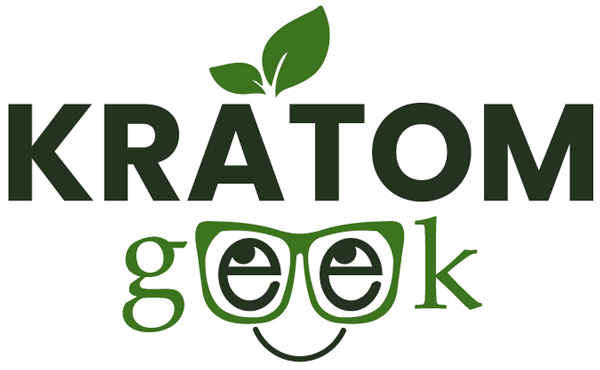By now, most of us are aware the United States government has become a nanny state. The act of regulating access to the wonders and benefits of Nature defies all rationale. However, Congress never lets anything impede their ability to repel the inalienable rights of others. So common sense never stood a chance in that situation.
Ostensibly, the government seeks to protect its citizens from “dangerous” botanical specimens. Our representatives believe we’re incapable of making our own decisions when it comes to health and safety. However, they do give access to these plants to the pharmaceutical industry. That way, those bioscience companies can create products from those plants to sell to you. Somehow, the government argues, that scenario removes the previous dangers from the equation. Perhaps, it’s because the government turns a blind eye to pharmaceutical companies taking advantage of the situation and getting people hooked on their synthetic drugs, as was the case that recently happened with Purdue Pharma. It got sued for its involvement in the opioid epidemic in America.
The gifts of Nature should be available to everyone, and no government agency should impose restrictions on its access. That is to say, better legislation is needed to protect consumer rights.
Fortunately, kratom advocates are pushing hard for the Kratom Consumer Protection Act (KCPA).
The Kratom Consumer Protection Act (KCPA)
The Kratom Consumer Protection Act (KCPA) is a bill designed to protect consumers in the kratom industry, requiring vendors to adhere to safety guidelines and Good Manufacturing Practices (GMP). Since the FDA refuses to do its job, the KCPA steps into the void and creates a haven in the market for those looking for kratom products sold from businesses that follow safety guidelines set in place by the government.
Traditionally, the Food and Drug Administration (FDA) would be the government agency responsible for overseeing the industry. However, the FDA declines to perform its duties. Instead, the federal agency spends that time pushing a false narrative about the plant. For the past few years, the FDA has waged a relentless war against kratom. And it hasn’t let up off the gas yet. So we can expect them to continue their efforts for at least the next few years until elected officials can rule on the needed legal matters. Political commentators expect Congress to push for marijuana legalization sometime during this session. And that may give kratom advocates a window of opportunity.
Until the FDA chooses to perform its primary function, the KCPA remains a necessary piece of legislation for the kratom industry. Not only does the bill provide the industry with a form of legitimacy against the hostile federal agencies, but it also gives the same reassurance to the consumer that they get when purchasing all other natural supplements.
Why Do We Need the KCPA?
Without legislation to establish proper standards for the kratom market, consumers are left with an unregulated industry where pricing and product quality can fluctuate dramatically from vendor to vendor. Vendors are left to police themselves, and are forced to make decisions on how best to provide for their customers. Furthermore, any industry that goes unregulated runs the risk of unscrupulous vendors offering adulterated, contaminated, or otherwise inferior kratom products.
Some states don’t have a KCPA passed by their representatives. The majority of states within the US operate without one. And that can cause complications for the consumer. Local governments that are devoid of the KCPA create an environment where consumers are at the mercy of the kratom company they’re purchasing from to do the right thing and develop safety measures to protect their clients. Now, that doesn’t mean that kratom companies in those states are untrustworthy. Most businesses shoot for superior customer satisfaction. That rule produces more customers—hence producing a winning business strategy. However, bad actors do infiltrate all industries. So a KCPA can help to deter them away.
The KCPA also helps to dispel the myths perpetuated by the FDA and kratom opponents. One of the prime complaints that the FDA touts is that the industry is unregulated. It states kratom is too risky for people to consume. However, the FDA glosses over the fact that the kratom industry is only unregulated because the agency refuses to regulate it.
Individual States Have Passed a KCPA
Currently, the AKA has worked with four state legislators to pass a version of the KCPA for their constituents. Georgia, Utah, Nevada, and Arizona are all protected under the Kratom Consumer Protection Act. Those bills provide the customers with extra security and additional comfort, knowing they have the safest available kratom products from any company in those states.
We should applaud those government officials for performing their elected duties. Those representatives fulfilled their obligations to their constituency and looked out for the interests of their voters. But for every single body of elected officials that get something right, there are always those that use their power to circumvent liberty. And we see that with the states that have gone in the opposite direction. Some have made kratom illegal to possess or purchase by its citizens.
Right now, a total of six different states have legislated a kratom ban, making kratom illegal to use by the citizens of those states. There are plenty of people living in those states that are now suffering from chronic pain. Yet, those citizens had their rights to possess a natural plant supplement stripped away from them. Their legislators chose to ignore the science surrounding the plant. Instead, they prefer to push anti-science rhetoric to appease the pharmaceutical industry’s desires.
And that dreaded reality could plague the entire nation if Congress ever enacted similar legislation. So the fight on the federal level continues.
The American Kratom Association Pushes for a Federal KCPA
Elected officials in all four states that passed the KCPA worked alongside the American Kratom Association (AKA) to bring it to fruition. The AKA is one of the most valuable allies kratom users have in the fight against future bans. Additionally, with the help from local volunteers, the AKA has managed to continue the fight in 2021. According to the latest legislation session calendars, quite a few additional states have introduced KCPA bills this year. And with the marijuana legalization campaigns continuing to knock down hurdles across the states, kratom bills have a better chance of gaining support than ever before.
The AKA fights for kratom consumer rights on the federal level, too. It stepped up to the frontlines and helped push for the Drug Enforcement Agency (DEA) to back down from an emergency scheduling of kratom back in 2016. Plus, the American Kratom Association has continued to lobby Congress to pass the KCPA. There are a few congressional members that support the bill, and should the bill become law, it would provide protection against federal agencies who seek to restrict access to kratom.
That outcome would furnish millions of chronic pain victims with a bit of well-needed solace to help ease their troubled spirits.
DISCLAIMER: Because Kratom remains unregulated by the FDA, the authors of this text would like to note that although this article contains many points regarding the use of Kratom, they should only serve as a piece of information, not medical advice.
Kratom is not intended to diagnose, treat, cure, or prevent any disease or condition.
Make sure to speak to a physician if you have questions before using Kratom.







Does Katom show up in Drug tests?
Hi there!
Kratom does not show up on any of the standard multi-panel drug tests. For more information, please refer to our article.
https://kratomgeek.com/kratom-drug-test/